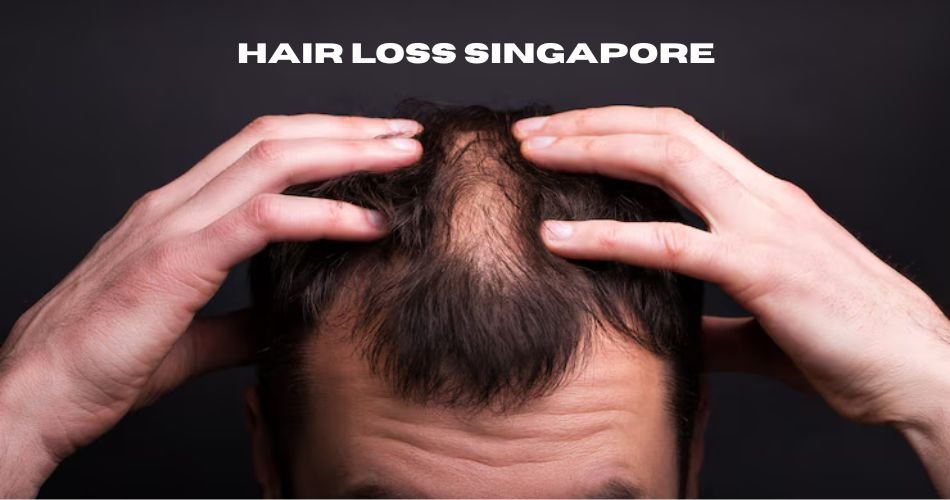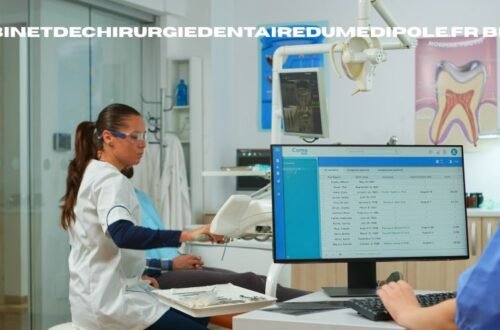Hair loss Singapore is more common than many might expect, with both men and women experiencing noticeable thinning or bald patches due to various environmental, genetic, and lifestyle-related reasons. The hot and humid climate, high stress levels due to fast-paced urban living, and dietary patterns in Singapore contribute significantly to the increasing number of individuals suffering from hair-related concerns. In this cosmopolitan hub, appearances play a vital role in social and professional spheres, making hair loss not just a cosmetic issue but an emotional one too. It’s important to understand the reasons behind the growing cases of hair fall to address them effectively.
Common Causes of Hair Loss Singapore
The causes of hair loss Singapore are multifaceted. One of the most prevalent factors is androgenetic alopecia, which is hereditary and affects both men and women. Environmental stressors, such as prolonged exposure to air pollution and UV radiation, further aggravate scalp conditions. Diets lacking in essential nutrients like iron, zinc, and proteins—despite the food diversity in Singapore—are another hidden culprit. Moreover, stress-related hair loss, medically known as telogen effluvium, is increasingly seen in busy professionals, students, and even homemakers, proving that chronic stress is a silent trigger of hair thinning.
Types of Hair Loss Common in Singaporeans
Singaporeans typically suffer from a few distinct types of hair loss. Male and female pattern baldness remains the most commonly diagnosed form, but other types like alopecia areata—an autoimmune condition that leads to patchy baldness—are also reported. Telogen effluvium, which results in sudden and temporary shedding of hair due to physical or emotional stress, is common among young adults. Traction alopecia is also seen among individuals who regularly tie their hair tightly or frequently undergo chemical treatments, a practice popular among fashion-forward residents in Singapore.
Hair Loss in Men: A Growing Concern in Singapore
Men in Singapore often begin to notice hair loss in their 20s or 30s, although some experience symptoms earlier. Due to genetic predispositions and the effects of dihydrotestosterone (DHT) on hair follicles, male pattern baldness is the leading cause. Many men initially ignore the symptoms, brushing it off as temporary, but the gradual thinning becomes apparent with time. In a society that values youth and vitality, early hair loss can impact self-confidence and mental well-being. Thankfully, numerous clinics in Singapore offer tailored treatment plans for men to slow down or even reverse hair loss.
Hair Loss in Women: A Silent Struggle in Singapore
Unlike male hair loss which is often obvious, women in Singapore may suffer in silence due to diffuse thinning or reduced volume that isn’t immediately visible to others. Female pattern hair loss usually starts with a widening of the parting line or thinning on the crown. Hormonal fluctuations due to pregnancy, menopause, or thyroid issues play a role in women’s hair loss. Additionally, cultural practices involving frequent hair coloring or heat styling damage the follicles. Singaporean women are increasingly seeking help from trichologists and dermatologists to regain control over their hair health.
Lifestyle and Its Impact on Hair Health
Singapore’s urban lifestyle can take a toll on hair health. Long working hours, exposure to air-conditioned environments, irregular sleeping patterns, and high stress levels can interfere with the natural hair growth cycle. Many residents consume a diet rich in fast food, processed snacks, and sugary beverages which lack the vital nutrients necessary for strong hair growth. The lack of outdoor exercise and fresh air also reduces the body’s ability to metabolize nutrients effectively. Making conscious lifestyle changes such as adopting a balanced diet, regular exercise, and proper sleep can help mitigate hair loss over time.
The Role of Diet in Preventing Hair Loss
A proper diet can be a game-changer in preventing hair loss Singapore, the availability of fresh fruits, vegetables, and seafood provides a great foundation for a hair-healthy diet. However, people often skip meals or consume convenient processed foods. Nutrients like biotin, omega-3 fatty acids, iron, and vitamin D are crucial for maintaining healthy follicles. Including eggs, salmon, leafy greens, and nuts can help strengthen hair from the inside out. Hydration also plays a key role, especially in Singapore’s humid climate where dehydration can lead to dry, brittle hair.
Hair Loss Treatments Available in Singapore
Singapore boasts a wide range of treatment options for hair loss, catering to both mild and advanced cases. Over-the-counter products like minoxidil are available for initial stages of hair loss. Prescription medications such as finasteride are effective for men suffering from male pattern baldness. For those seeking non-invasive options, Low-Level Laser Therapy (LLLT) is popular in many clinics. More advanced treatments like Platelet-Rich Plasma (PRP) therapy and hair transplants are also offered by specialized clinics. These treatments use cutting-edge technology and are administered by certified professionals, ensuring high success rates.
Non-Medical and Natural Remedies in Singapore
While clinical solutions are popular, many Singaporeans turn to natural remedies and traditional treatments. Herbal shampoos, essential oils like rosemary or peppermint, and scalp massages have gained popularity for stimulating hair growth. Traditional Chinese Medicine (TCM) also plays a significant role in holistic hair treatment, focusing on improving blood circulation and balancing the body’s energy. Some individuals opt for acupuncture or herbal tonics to address underlying issues causing hair loss. Though these remedies take time, they are often preferred due to their minimal side effects and holistic benefits.
Choosing the Right Hair Specialist or Clinic
Finding the right hair loss specialist in Singapore is crucial for effective treatment. With numerous dermatologists, trichologists, and hair clinics available, it’s important to choose one with credible reviews, proper certifications, and tailored treatment plans. Clinics like Svenson, Beijing 101, and Follicle Clinic are popular choices known for their experienced staff and technology-backed solutions. Always consider undergoing a scalp analysis before committing to any treatment to better understand your condition and receive personalized recommendations based on your hair type and loss pattern.
Understanding the Cost of Hair Loss Treatment
The cost of treating hair loss Singapore varies significantly depending on the method and clinic. Basic consultations and topical treatments may cost between SGD 50 to SGD 200 per session. More advanced therapies like PRP can range from SGD 300 to SGD 1000 per session. Hair transplant procedures, being the most expensive, can go beyond SGD 10,000. It’s essential to evaluate the long-term benefits, follow-up requirements, and treatment success rates before making a financial commitment. Many clinics offer packages or installment plans to ease the cost burden.
Emotional Impact and Confidence Issues
Hair loss doesn’t just affect the scalp—it affects the soul. In Singapore’s image-conscious society, losing hair can lead to a drop in self-esteem and emotional distress. Young adults facing early-onset hair loss often feel isolated or embarrassed, avoiding social situations or public appearances. The psychological toll can be even more severe for women, who may feel their femininity is diminished. Thankfully, increased awareness and open conversations about hair loss have led more people to seek help earlier, breaking the stigma and normalizing the use of treatment options.
Tips to Maintain Healthy Hair in Singapore’s Climate
Living in Singapore requires a special approach to hair care. Due to constant exposure to high humidity and heat, washing hair regularly is essential to keep the scalp clean and prevent fungal growth. Using a mild, sulfate-free shampoo helps maintain the scalp’s natural oils. Applying a leave-in conditioner or hair serum offers protection from UV rays and environmental pollutants. Wearing hats or using umbrellas while walking under the sun also shields the scalp. Regular trimming, reducing heat styling, and limiting chemical treatments can go a long way in maintaining strong, healthy hair.
When to See a Doctor for Hair Loss
Many people ignore the early signs of hair loss, thinking it will resolve on its own. However, if you notice sudden shedding, bald patches, or hair falling out in clumps, it’s time to see a doctor. In Singapore, many general practitioners are well-versed in spotting signs of alopecia and can refer patients to dermatologists or hair specialists. Early intervention is key to stopping or even reversing hair loss. Keeping a diary of your hair shedding pattern and diet can also be helpful when consulting a specialist.
The Future of Hair Restoration in Singapore
The future looks bright for hair loss solutions in Singapore. With continuous advancements in biotechnology and aesthetics, treatments are becoming more effective, affordable, and non-invasive. Hair cloning, stem cell therapy, and gene editing are being researched as potential breakthroughs. Clinics in Singapore are staying at the forefront by adopting AI for scalp analysis and personalized treatment planning. As awareness grows and stigma decreases, more people are embracing the journey of hair restoration, leading to a healthier and more confident society.
Conclusion
Hair loss Singapore is a rising concern affecting individuals across all age groups and genders. From genetic causes to lifestyle factors, the triggers are varied, but so are the solutions. Singapore offers a wealth of treatment options ranging from advanced medical therapies to natural remedies and holistic care. Understanding the root cause, seeking timely help, and making necessary lifestyle adjustments can make all the difference in restoring not only your hair but also your confidence. Whether you choose clinical treatment or natural methods, the journey toward healthier hair begins with awareness and action.






